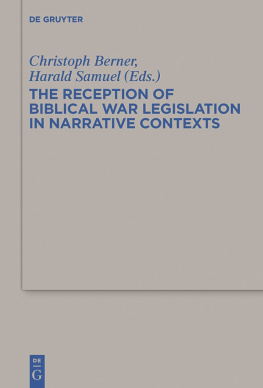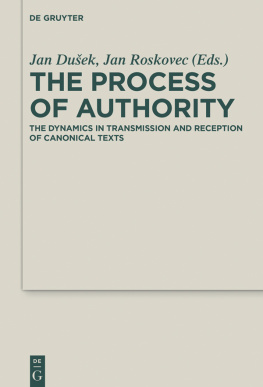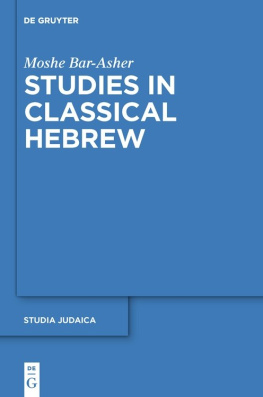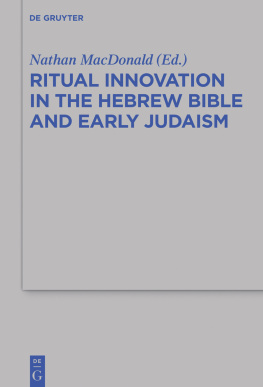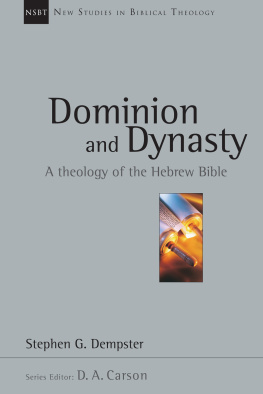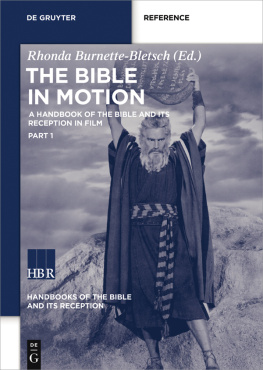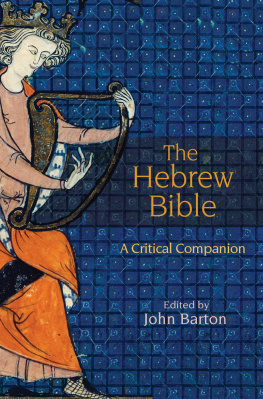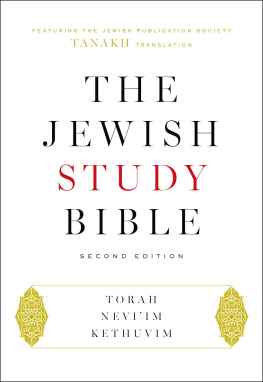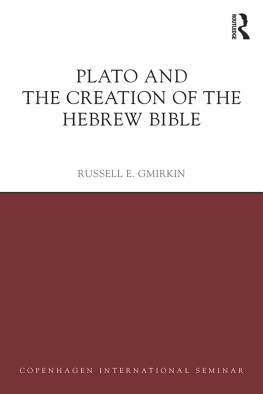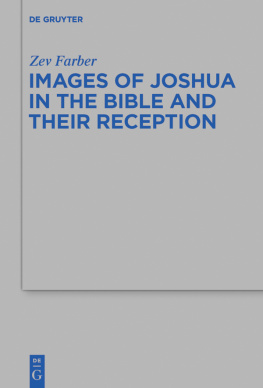Table of contents
- Assnat Bartor (Tel Aviv University)
When you go forth to war against your enemies
Narrative Reading of Deuteronomic Warfare Legislation - Christoph Berner (Georg-August-Universitt Gttingen)
Abraham amidst Kings, Coalitions and Military Campaigns
Reflections on the Redaction History of Gen 14 and its Early Rewritings - Wolfgang Oswald (Eberhard-Karls-Universitt Tbingen)
Defeating Amalek, Defending the Constitution: The Political Theory of Ex 17:816 - Shimon Gesundheit (Hebrew University of Jerusalem)
Midrash-Exegesis in the Service of Literary Criticism - Reinhard Achenbach (Westflische Wilhelms-Universitt Mnster)
Bndnisverbot und Mischehenverbot
Zum Banngebot in Deuteronomium 7,12 und seiner Wirkungsgeschichte - Reinhard G. Kratz (Georg-August-Universitt Gttingen)
Law and Narrative in Deuteronomy and the Temple Scroll - Cynthia Edenburg (The Open University of Israel)
Paradigm, Illustrative Narrative or Midrash: the Case of Josh 78 and Deuteronomic/istic Law - Harald Samuel (Georg-August-Universitt Gttingen)
Deuteronomic War Prescriptions and Deuteronomistic Wars - Sebastian Grtz (Johannes Gutenberg-Universitt Mainz)
Beobachtungen zu Rezeption und Interpretation von Kriegsgesetzen des Pentateuchs in den Bchern der Chronik - Francis Borchardt (Lutheran Theological Seminary Hong Kong)
The Battle of Emmaus and 1 Maccabees Creative Use of Martial Law - Annette Steudel (Georg-August-Universitt Gttingen)
Biblical Warfare Legislation in the War Scroll (1QM VII:17 and X:18)

The Reception of Biblical War Legislation in Narrative Contexts
Beihefte zur Zeitschrift fr die alttestamentliche Wissenschaft
Edited by
John Barton, Ronald Hendel,
Reinhard G. Kratz and Markus Witte
Volume 460

ISBN 978-3-11-034844-6
e-ISBN (PDF) 978-3-11-034972-6
e-ISBN (EPUB) 978-3-11-038413-0
ISSN 0934-2575
Library of Congress Cataloging-in-Publication Data
A CIP catalog record for this book has been applied for at the Library of Congress.
Bibliographic information published by the Deutsche Nationalbibliothek
The Deutsche Nationalbibliothek lists this publication in the Deutsche Nationalbibliografie; detailed bibliographic data are available in the Internet at http://dnb.dnb.de .
2015 Walter de Gruyter GmbH, Berlin/Boston
www.degruyter.com
Acknowledgments
When preparing and eventually completing this collection of articles, it occurred to us the process had at least some analogies to conducting a successful military campaign. You achieve victories, suffer some defeats, and experience occasional delays, but in the end, you would not have prevailed without your allies and supporting troops. Therefore, we want to take the opportunity to express our gratitude to the academic allies and technical supporters who joined us in this literary endeavor. First, our cordial thanks go to all authors who contributed the results of their research and made this project possible. We would also like to thank the members of our EABS research group Law and Narrative who participated in our discussion at the 2013 meeting, in Leipzig, and provided important stimuli for this volume. Moreover, we are obliged to the editors, Prof. John Barton, Prof. Ronald Hendel, Prof. Reinhard G. Kratz, and Prof. Markus Witte, for accepting this volume into the BZAW series. Sophie Wagenhofer and Johannes Parche from the publisher, de Gruyter, have accompanied us throughout the editorial process, and we are greatly appreciative of their excellent support (and patience). Furthermore, we wish to express our kind thanks to Laura Schimmelpfennig and Christian Steinmeier, our student collaborators in Gttingen, for their invaluable assistance in preparation of the articles. Without them, our battle against non-unicode fonts, tabulators, and incorrect stylesheets might have proven a lost cause. Finally, we would like to thank Paul Michael Kurtz and Stephen Germany for their generous and skillful help with English proofreading.
Christoph Berner
Harald Samuel
Gttingen, 15 May 2015
(International Conscientious Objectors Day)
Introduction
In the writings of the Hebrew Bible, war is a dominant topic. Especially in the Pentateuch (GenDeut) and the Former Prophets (Josh2 Kgs), there are various stories about all kinds of hostilities between the people of Israel (or a certain sub-group) and its enemies. Moreover, besides these frequent war narratives, there is also a number of legal passages (most notably the so-called rules of warfare in Deut 20) that contain specific stipulations pertaining to the conduct of war. Clearly, the issue of warfare had a deep impact on both biblical law and narrative.
In recent years, both aspects have received increased attention from the scholarly community. While some studies have focused on biblical war narratives and their ideological agendas, others have investigated biblical legislation for warfare, often against its ancient Near Eastern background. only insufficient attention has been paid thus far to the relationship between war narratives and warfare legislation in the Hebrew Bible. Yet even a brief glance at the opening section of the rules of warfare in Deut 20:1 indicates how closely intertwined both areas actually are:
The text invokes the memory of Israels deliverance from Egypt as a paradigm for determining the peoples future conduct in a similar hostile situation. Consequently, the author not only refers back to a passage from the Exodus narrative (apparently the account of the events at the Sea of Reeds, in Exod 14) but also claims the following rules should apply to all of Israels future wars, which are recounted in the conquest narrative of the Book of Joshua and beyond. Thus, the rules of warfare in Deut 20 have been purposefully embedded within the narrative context of the Hexa-/Enneateuch, and this connection naturally raises the question as to the impact they have had on the portrayal of Israels wars.
The example of Deut 20:1 illustrates the close ties between biblical law and narrative, yet it reveals only one aspect of a phenomenon that is much broader and more complex. When dealing with the general relationship between law and narrative in the Hebrew Bible, one can, in fact, distinguish several specific ways in which the two areas have influenced each other. To begin with, there are legal passages referring back to events of the biblical narrative to establish an etiological reference point for a certain stipulation (e. g., Exod 22:20). While these etiologies often seem to represent secondary elements within the legal context, some laws never existed independently but rather were devised as a reaction to issues within the biblical narrative itself (e. g., Deut 17:1420). Although in both instances, the legal material is clearly dependent on a narrative background, the precise implications of this observation are perhaps less clear than they may appear at first glance. What remains to be determined in each individual case is whether reference is made to a specific text preserved within the biblical corpus or to an alternative expression of the narrative tradition that might now be unavailable to us.
It goes without saying that the occurrence of narrative influences on the legal material reflects but one side of the coin. In addition, one can also point out several examples where the direction of dependence is reversed, with narrative texts drawing on legal traditions. A first telling example of this category would be stories that illustrate the application of previously given laws (e. g., Josh 6,1721) or serve as a case narrative to introduce new or additional stipulations (e. g., Num 15,3236). At the same time, reference should also be made to the various texts related to the neglect of or disobedience against certain laws and their consequences. While some of these texts reflect the authors polemics and thus indicate a certain theological agenda (e. g., 1 Kgs 12:2833), others obviously try to remedy tensions arising from the fact that a certain narrative was not in line with a legal stipulation expressed elsewhere (e. g., Josh 9). Importantly, however, these traditions were not necessarily identical with the legal material preserved in the biblical writings since the very beginning, a crucial issue to keep in mind when dealing with all these different kinds of narrative that were influenced by legal traditions. In this respect, one must guard against rash equations. Rather, it is necessary to broaden the perspective and include the extant extra-biblical legal material as well in order to recognize the ways in which it may have interacted with biblical law and narrative.

